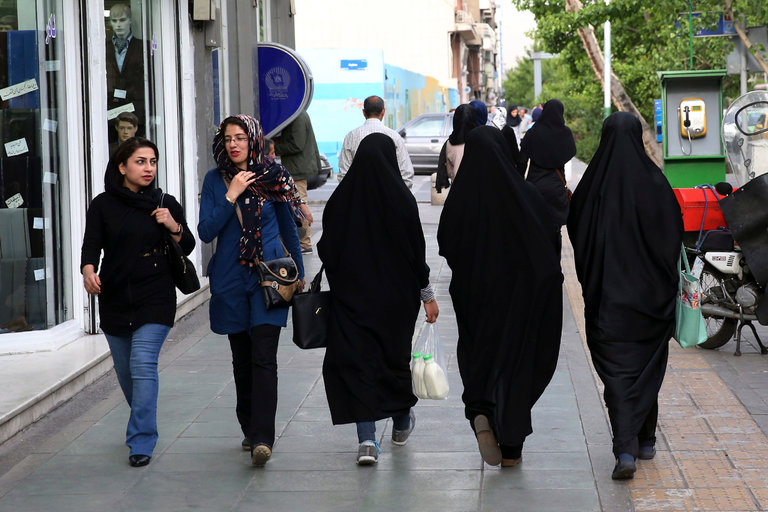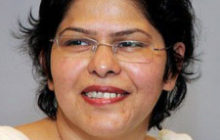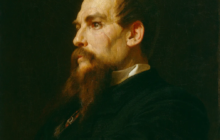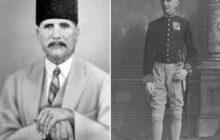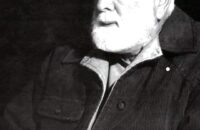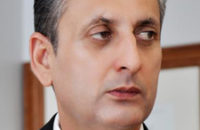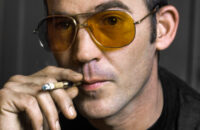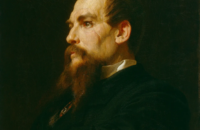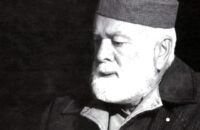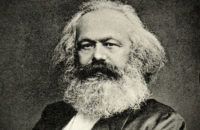By Thomas Erdbrink
TEHRAN — Iran’s judiciary unleashed one of its periodic crackdowns on social media permissiveness on Sunday, announcing the arrest of eight people involved in online modeling without a mandatory head scarf and questioning another woman, a former model, live on state television on Sunday.
A blogger, Mehdi Abutorabi, 53, who managed a publishing tool called Persian Blog, was also detained, the semiofficial student news agency ISNA reported Monday.
The former model, Elham Arab, 26, had been something of an Instagram star, posting pictures of herself in bridal gowns with eye-catching, dyed-blond hair. But on Sunday, months after her Instagram account had been shut down, she wore a pious black scarf and matching gloves as she was questioned by two prosecutors during a live television program.
In sharp contrast to the happy and glamorous images of herself posted online, Ms. Arab spoke of her “bitter experiences” in Iran’s technically illegal modeling industry and warned young women to think twice before posting pictures of themselves online. “You can be certain that no man would want to marry a model whose fame has come by losing her honor,” she said.
The head scarf issue often features prominently in the constant tug of war between powerful hard-liners and Iran’s increasingly urbanized and worldly society. Iran’s laws require that all women, even visiting foreigners, cover their hair out of a traditional respect for culture and morality. Many hard-liners view the obligatory veil as a last-ditch defense against what they say is an onslaught of Western cultural decadence.
But the main culprit was not Ms. Arab, Tehran’s public prosecutor, Abbas Jafar-Dolatabadi, concluded on the television program. No, the main offender was “the enemy,” Iran’s household label for the West and its unwanted influences.
“The enemy is investing in order to create a generation without any willpower,” the prosecutor said of social media. “We must refrain from any actions that run counter to the values of the establishment.”
The television program was part of a broader crackdown on self-expression and freedoms both online and in the real world that was rekindled after the victory of reformists and moderates in Iran’s parliamentary elections in February.
The crackdown, led by the hard-line-dominated judiciary and security forces, runs counter to the policies of President Hassan Rouhani, who was elected on a platform of greater personal freedoms and has called in several recent speeches for a loosening of Iran’s social strictures. While Iran is undergoing broad changes under the influence of satellite television, the Internet and cheap foreign travel, few laws have been updated since the Islamic Revolution of 1979.
With the onset of higher spring temperatures, some women have sought to shed all or parts of the often stifling Islamic uniform. That has brought the morality police back onto the streets of the capital, despite promises by Mr. Rouhani that he would prevent their return. In recent weeks, the authorities raided several parties in the capital and the Caspian Sea region where there was drinking and dancing — both forbidden in Iran.
Nevertheless, the authorities seem hesitant to come down too severely on those who violate the norms. Several popular actors, actresses and athletes, who wield considerable influence through social media platforms, were given a relative slap on the wrist last week after being caught in a raid on an illegal party, local news outlets reported.
“Those artists who play in movies and television series and athletes have the special attention of the youths,” Mr. Jafar-Dolatabadi, who seems to be at the center of the crackdown, said on the judiciary’s website, Mizan. “If you take part in vulgar sessions, we will publicly announce your names.”
The strategy of Iran’s hard-liners is to single out special cases, analysts say, extracting televised mea culpas from prominent figures like Ms. Arab to warn the general public that the ideological lines are not to be overstepped too obviously.
Many here doubt the strategy will have much effect. “They are doing such things to show us who is in power,” Mojgan Faraji, a reformist journalist, said of the hard-liners. “But in the end, they lose, as the gap between them and the society is only widening.”
State television has been steadily losing influence, facing hundreds of foreign-based Persian-language satellite channels, the semiofficial Fars News Agency complained recently.
Nevertheless, many pitfalls remain for women. Last week, a female politician, Minoo Khaleghi, who had won election to Parliament as a moderate, was told she would not be allowed to take her seat after images of her emerged on social media showing her without the obligatory head scarf. On Saturday, Mr. Jafar-Dolatabadi ordered Ms. Khaleghi to explain to judicial officials why such images of her existed, the reformist newspaper Shargh reported.
On the same program, Iran’s prosecutor for cybercrimes, Javad Babaei, announced the arrest of the eight people, apparently in connection with online modeling. His unit is focusing on Instagram, which is not blocked in Iran. “Sterilizing popular cyberspaces is on our agenda,” he said, criticizing the introduction of broadband in the country “without considering the consequences.”

